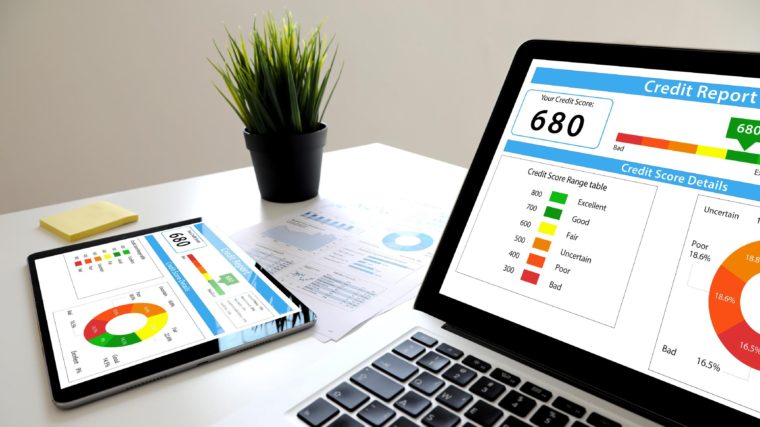Your credit score shows how well you’ve managed credit in previous years. Simply put, the higher your score, the more likely it is that any credit applications you make will be accepted, whereas if you have a lower score, you will find it more difficult to borrow.
We always suggest that a good starting point is to visit one of the many Credit Monitoring sites, where you can access your credit score for free. Not only does it give you access to your current score, but you will also be provided with some useful information that will help you improve your score based on your unique circumstances, along with a tracker to see how it’s changing.

Credit is what allows our customers to lease vans with us; we use it to place new vehicle orders and our customers repay this cost in monthly instalments by the way of a van lease or contract hire agreement. The vehicle leasing industry itself all comes down to credit, and if you can’t get it, you can’t lease a van – so it’s important to understand how your own credit rating is calculated, how it’s used and what you can do to improve it.
Each lender scores their applicants by their own criteria, so if you do get declined it might just be because you don’t match their ideal customer profile. A declined credit footprint isn’t necessarily a terrible thing, but if you start to get a few declines racked up against your name it could become a concern. The possibility of obtaining credit could be further reduced as each time you are declined for (or apply for) credit, an electronic footprint is left on your record. Comparison websites (e.g. www.moneysupermarket.com) allow you to use your credit report to see if you’re likely to be accepted for a particular form of credit and this is something well worth doing to avoid being declined and this showing on your record.
Credit history is generally built up over a period of time, and this increases with the number of correct payments you make on time. If the debt goes unpaid, your credit score goes down. The good news is, there are steps you can take to improve your credit score – here are a few practical things you can do:
Lines of credit will stay on your file if you forget to cancel them so make sure you terminate old credit cards or phone contracts that you no longer use. Links to ex-partners, old addresses or failing to register for the electoral roll can also negatively affect your rating so make sure all your details are kept up to date.
The simple answer is yes. Just because your credit report shows a few missed payments, you may still be eligible for the credit to lease a van so it’s always worth asking he question. One outcome could be that due to the increased risk of lending, lease payments may be higher.
At vanleasing.com we specialise in bad credit van leasing and do our best to ensure that we can get all of our customers into a van, regardless of previous issues with poor credit. Get in touch with the team today to find out more.
The main credit reference companies are, Experian, TransUnion and Equifax, and you should be able to get a record of your credit rating free of charge from any of these. Your standard free report will give some information about your credit history, but it won’t include any of the extras such as monitoring your credit score.